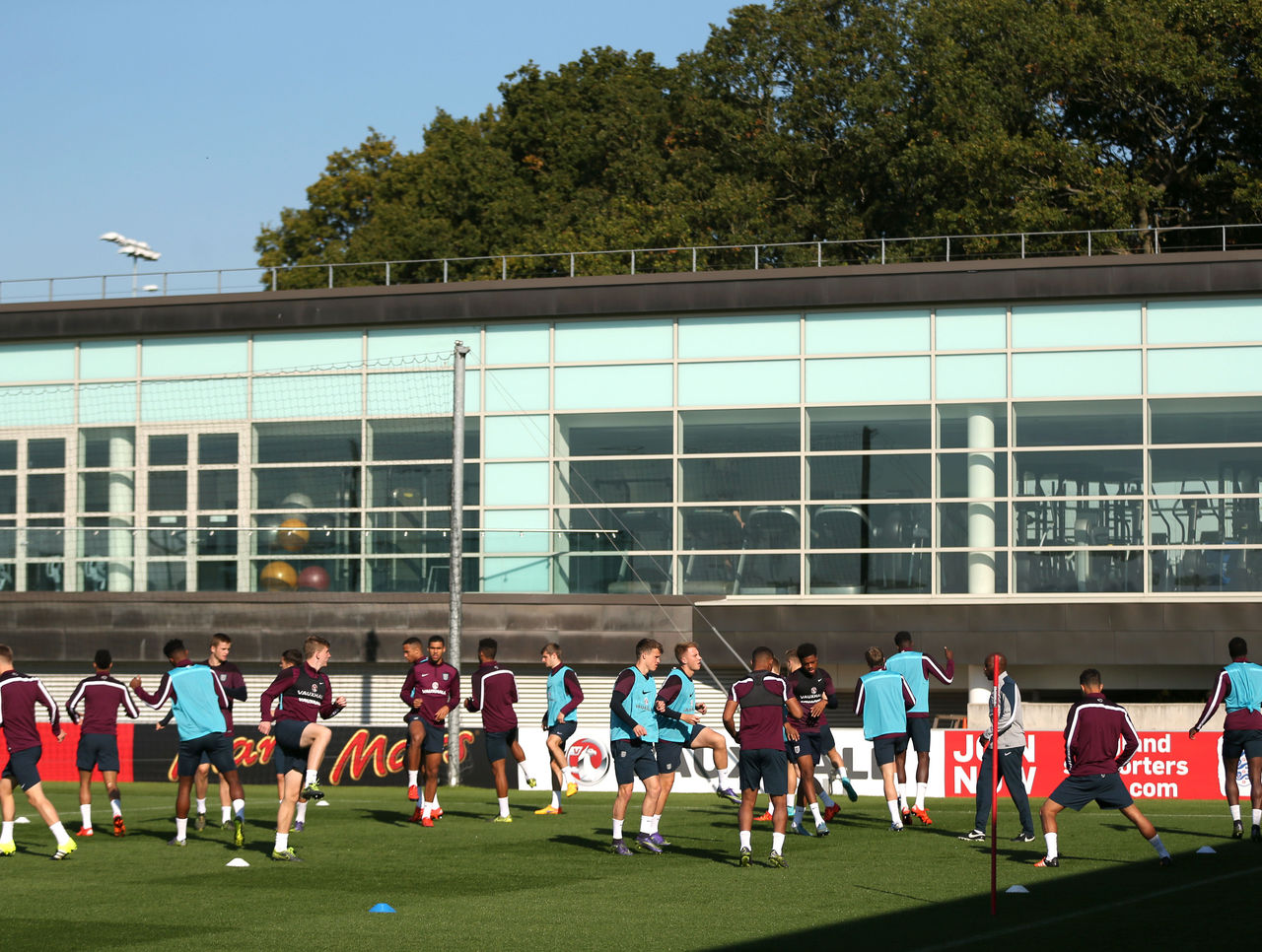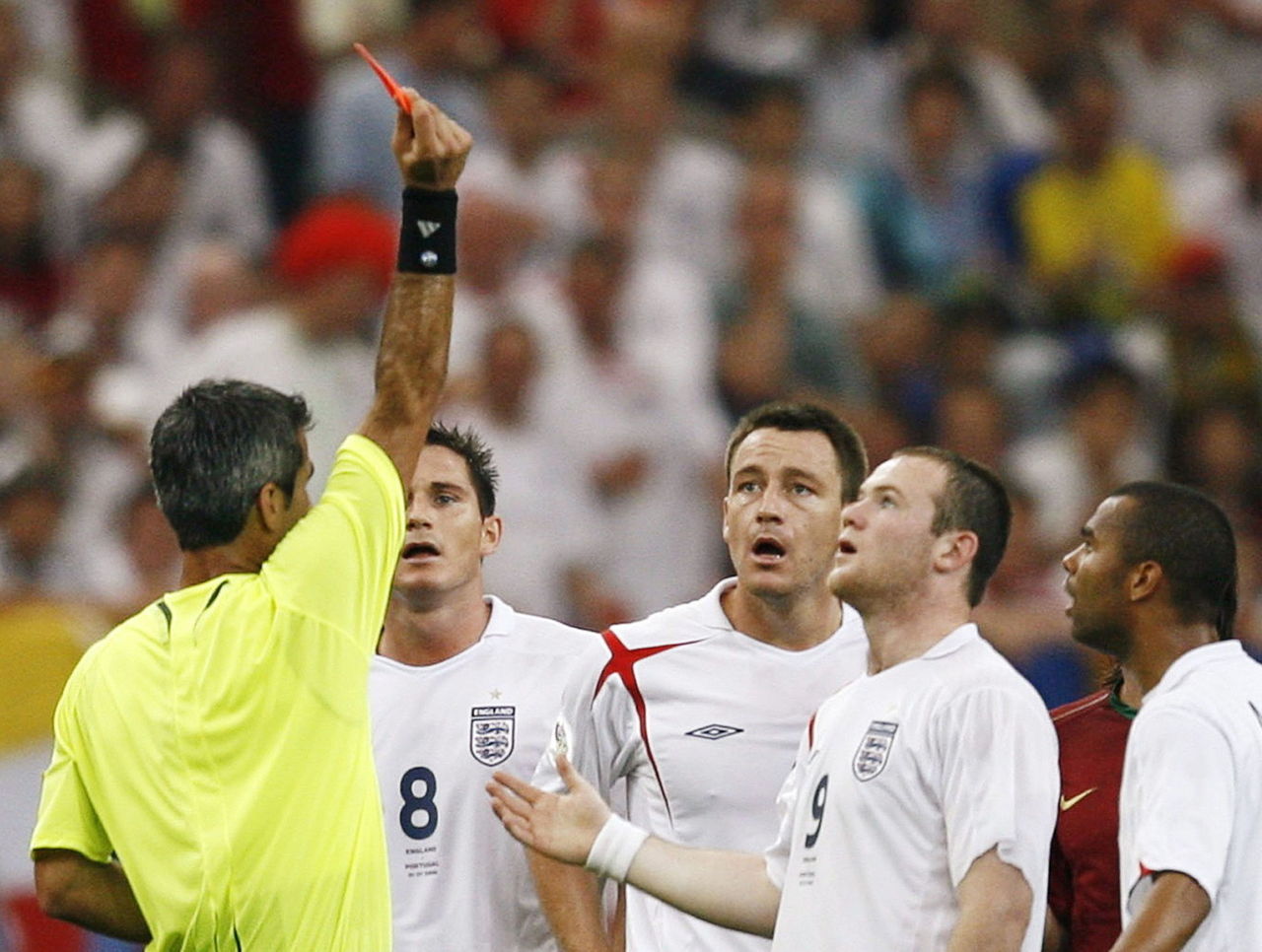FA can't afford to squander England's emerging generation
Wayne Rooney faced another wall of blue and, seemingly out of ideas, poked another pop shot harmlessly over Hannes Thor Halldorsson's bar. Harry Kane did the same. And Dele Alli. England was, as usual, bereft of ideas Monday.
The 2-1 loss to Iceland was the most shameful result in the history of the country's heavily blemished international football history, epitomising the lack of desire and timidness that's plagued the Three Lions for 20 years.
It cost Roy Hodgson his job.
Related: Hodgson resigns as England manager after shocking loss to Iceland
This was supposed to be a fresh generation: The aged mainstays of Steven Gerrard and Frank Lampard had relinquished the central midfield for Eric Dier and Alli, while Kane, Daniel Sturridge, and Marcus Rashford looked to forge formidable options in attack for around a decade.
People can say who should or shouldn't be playing but for me no matter what team we have out.. We should be beating ICELAND right now!#FACT😐
— Toni Duggan (@toni_duggan) June 27, 2016
Instead, it was a tough lesson for England's young charges. Losing against a country with a population similar to that of Coventry. Inexcusable. Luckily for them, it's a rank period from which they could thrive.
Change in mentality
The conception of St George's Park - the training centre of England's 24 teams across youth and senior sides - began when 350 acres of Staffordshire land was bought in 2001. It's no coincidence it occurred months after an embarrassing European Championship group-stage exit at the hands of Romania - something had to be done.
Its inspiration was Clairefontaine, the base of the France national team that had just plundered winners' medals from the 1998 World Cup and Euro 2000. When the project was finally approved in 2008, building began.
With further influence taken from the emerging powers of Spain's and Germany's coaching methods, the doors opened in 2012. With it came a change of psyche and approach on the training pitches, but it was wishful thinking for all of that to be evident less than four years later.
Exciting generation
In England's youth sides, however, it's beginning to show. Through the likes of Under-19 captain Taylor Moore, Manchester City's Patrick Roberts, Chelsea forward Dominic Solanke, and others, there's an exciting crop emerging from St George's Park. It's progressed to win the European Championship at two different age groups.

Perhaps most refreshing about these youngsters is the attitude bred in them. Instead of the Achilles-stomping and cross-and-head teachings of old, they're simply ingratiated into a winning mentality.
It's a belief that's unerringly similar to the one shown by Iceland's cohesive unit.
"I wouldn't want to be any other European or world team looking at one of our games and analysing what they're going to have to do to try and beat us," Moore told theScore in April. "I believe we're that good we can scare anybody; I believe we can go all the way."
Moore was referring to the impending Euro finals in Germany this July in the same vein that Lars Lagerback and Heimir Hallgrimsson's ranks have addressed Euro 2016. This is a game in which mentality can trump ability, and finally the English Football Association is wrapping its head around that.
Finding the right man
Nowadays, managing on the international stage is like a sojourn before retirement. Antonio Conte quit the footballing equivalent of a part-time job with Italy to return to the day-to-day grind at Chelsea, and it felt like a swansong for 68-year-old Hodgson. England needs to buck a trend.
The FA needs to find someone who can oversee the gelling of the current younger players - who don't boast much experience dribbling between Burton-on-Trent's cones - with the St George's Park graduates. Man management is paramount, and a sobering reassessment of England's mindset is needed: This is a small country that only has major tournament knockout wins against Paraguay (1986), Belgium (1990), Cameroon (1990), Spain (1996), Denmark (2002), and Ecuador (2006) since 1966.

Rooney isn't deserving of his pedestal; a midfield diamond is tired and not used among top-flight teams, and a player's attitude should be paramount when picking major tournament squads.
This is a time for a people person who demands respect and can encourage both team spirit and an unflappable work ethic on the field. This is the year of the underdog, so Hodgson's successor should look further for examples than Leicester City's Claudio Ranieri and Iceland's fantastic coaching duo.